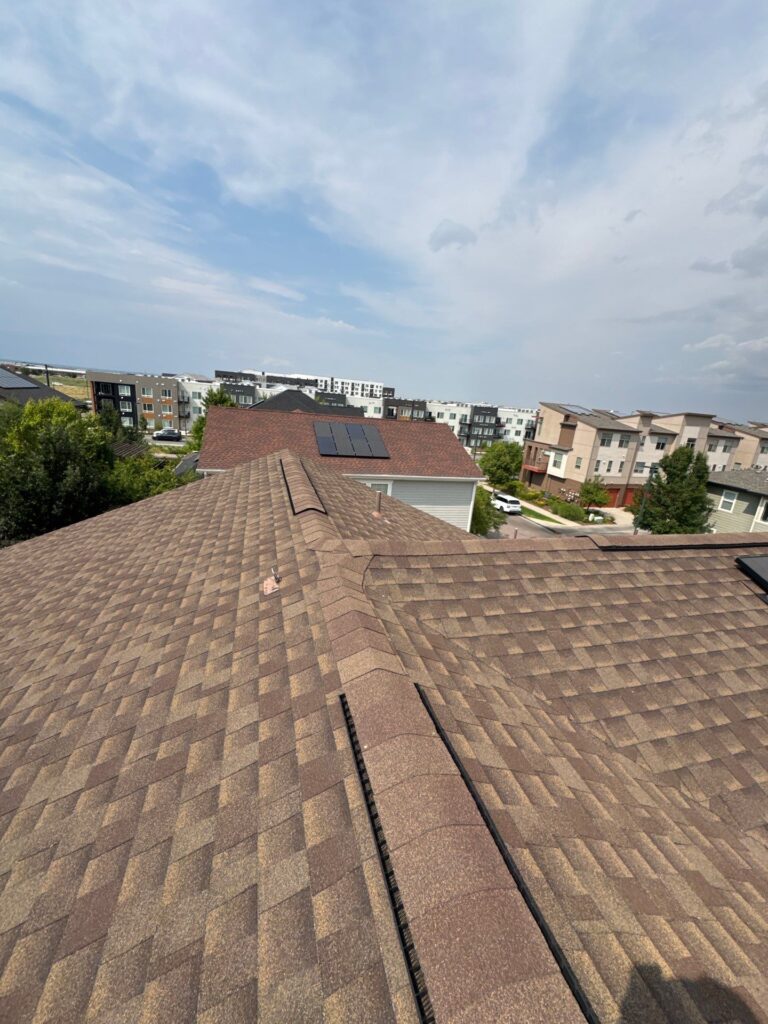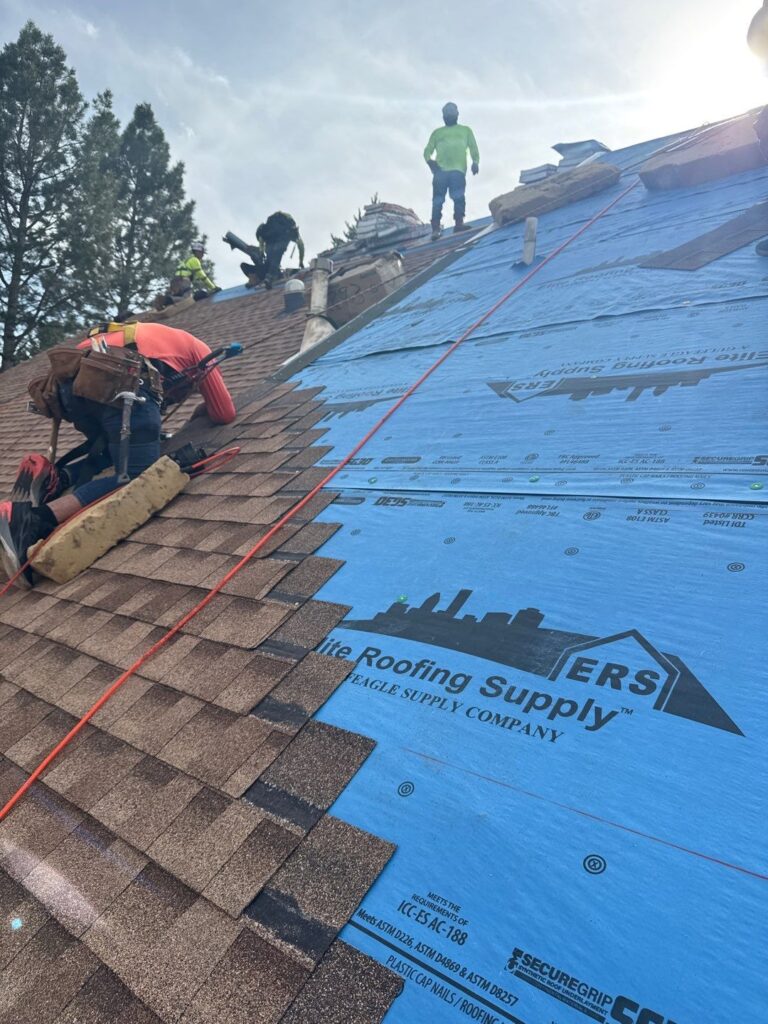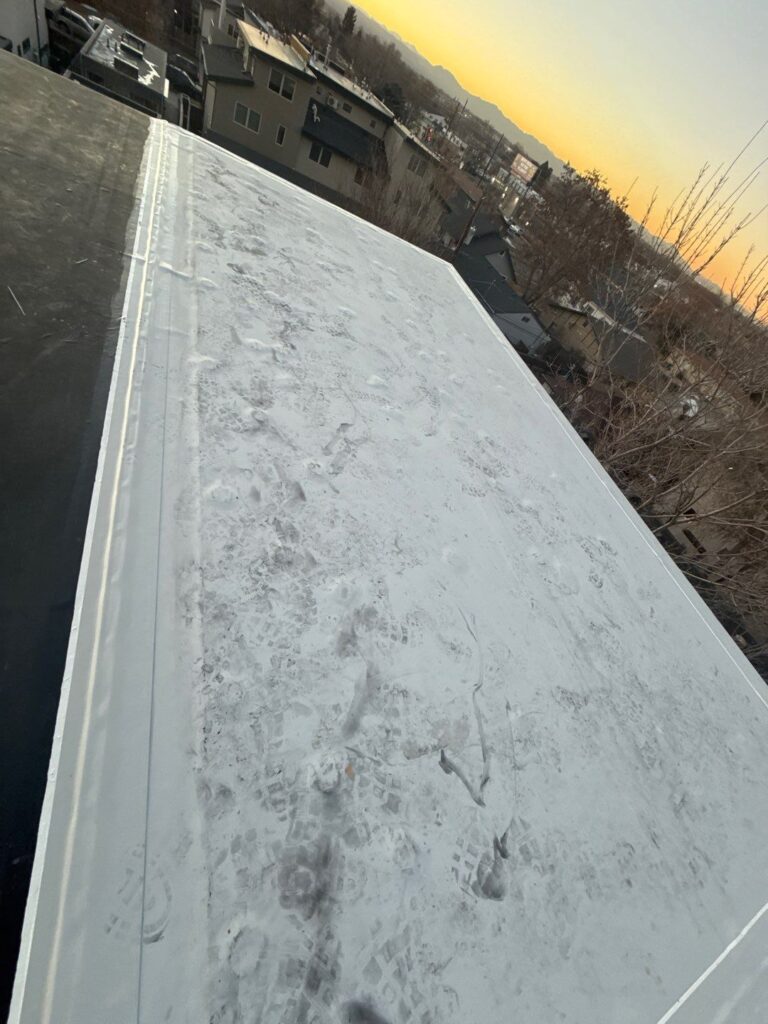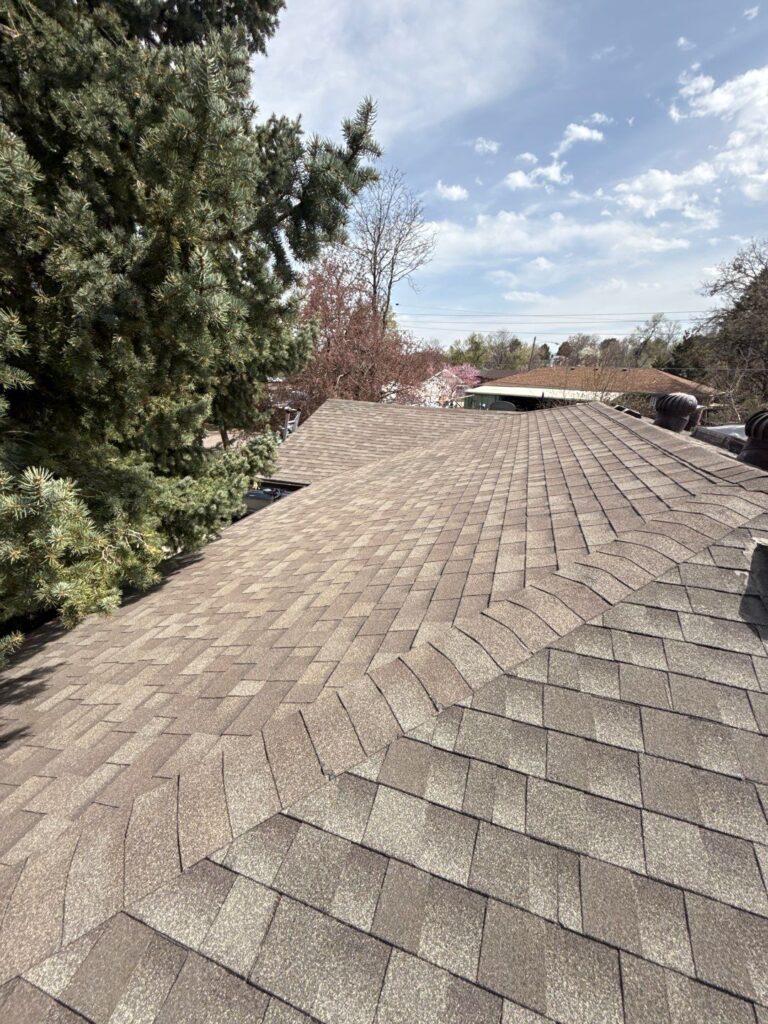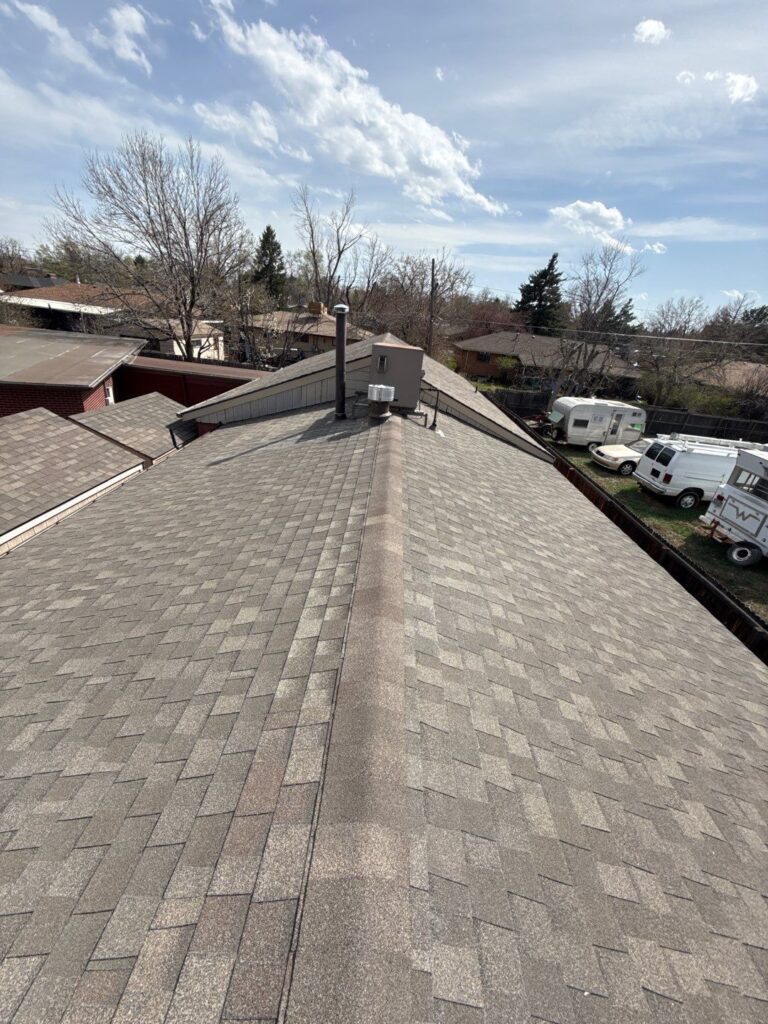How to Identify and Handle Hail Roof Damage: Signs, Claims, and Restoration

When severe hailstorms strike Denver, they can inflict serious damage on your roofing system—often without immediate visible evidence. Prompt detection and proper response are essential to preserving your property and protecting your investment.
Recognizing Hail Damage on Your Roof
After a hailstorm, it’s crucial to inspect your roof or hire professionals to do so. Hail impact can compromise the structural integrity of your roofing materials in subtle yet destructive ways. Here are the most common and telling signs:
1. Bruised or Missing Granules on Shingles
Asphalt shingles are designed to shed water efficiently. When hailstones hit them, they can bruise or knock off granules, leaving dark spots and weakening their weatherproofing capabilities.
2. Cracked or Fractured Shingles
Impact pressure may crack shingles, particularly if the hailstones were large or wind-driven. Cracks expose your underlayment and decking, making leaks inevitable over time.
3. Dents on Metal Components
Check flashing, vents, chimney caps, and gutters. Dents or dimples here are indicators of the hail’s intensity and often correlate with shingle damage.
4. Torn or Curled Shingles
Shingles may get lifted or torn, breaking their seal with the roof and inviting wind and water damage.
5. Indoor Warning Signs
Water stains on ceilings, peeling paint, and damp attic insulation signal a roof compromise that could have originated from hail impact points.
Navigating Homeowner’s Insurance After a Hailstorm
Timely and strategic action can determine whether your insurance provider fully covers your roof repairs or denies the claim. Follow these steps to ensure a smooth process:
Step 1: Document the Damage Thoroughly
Use a high-resolution camera to capture wide shots and detailed close-ups of all affected areas. Include timestamps and damage to landscaping or outdoor furniture to support your claim.
Step 2: Understand Your Coverage
Policies vary. Check if you’re covered for full roof replacement or only partial repairs. Review your deductible and look for any exclusions related to hail or storm events.
Step 3: Contact Your Insurance Company Immediately
Delays can result in denied claims. File your report promptly and provide preliminary documentation as requested.
Step 4: Get a Professional Roof Inspection
Before your adjuster visits, schedule an inspection with a licensed roofer experienced in insurance claims. A reputable Denver roofing company will provide a detailed report and may even meet with your adjuster on-site.
Step 5: Advocate with Evidence
Having a contractor on your side ensures that nothing gets overlooked. It increases the likelihood of a fair payout, especially when negotiations get technical.
Repairing Roof Damage from Hail: What to Expect
Even minor hail impacts can cause major headaches if left untreated. Water infiltration can lead to insulation damage, wood rot, mold growth, and structural decay. Repairs range from replacing individual shingles to full roof replacements depending on the damage extent.
Minor Repairs
- Replacing a limited number of shingles
- Sealing minor cracks and gaps
- Reattaching or replacing flashing
Major Restorations
- Full re-roofing for compromised areas
- Replacing underlayment and decking
- Upgrading to hail-resistant materials
Partnering with experienced roofers in Denver ensures quality materials and installation methods that extend the life of your roof and withstand future storms.
Preventive Measures to Protect Your Roof Against Hail
Mitigating future hail damage begins with proactive planning and smart choices:
Install Impact-Resistant Shingles
Class 4 impact-resistant shingles are tested to endure hailstones up to 2 inches in diameter, offering the best long-term value.
Regular Roof Inspections
Schedule bi-annual inspections to detect minor damage before it escalates. Fall and spring are ideal times, especially before Denver’s storm season.
Ensure Proper Attic Ventilation
Good airflow reduces temperature fluctuations that can stress shingles and underlayment, preserving structural performance during harsh weather.
Maintain Clean Gutters and Downspouts
Proper drainage prevents water buildup and pooling that can exploit small damage points during storms.
Working With a Local Expert Roofing Contractor
When it comes to repairing hail damage and filing insurance claims, local expertise matters. Tried and True Roofing, based in Denver, Colorado, combines industry-leading roofing practices with in-depth knowledge of regional insurance protocols, helping homeowners navigate claims and restore their roofs without hassle.
CONCLUSION
Ignoring or postponing hail damage repairs can jeopardize both your roof’s performance and your insurance coverage. By promptly identifying damage, acting on insurance claims, and trusting skilled roofing contractors in Denver, you protect your home from costly deterioration. Ensure long-term resilience by upgrading to impact-resistant materials and scheduling routine inspections—because peace of mind starts with a roof you can rely on.
How to Identify and Handle Hail Roof Damage: Signs, Claims, and Restoration Read More »
